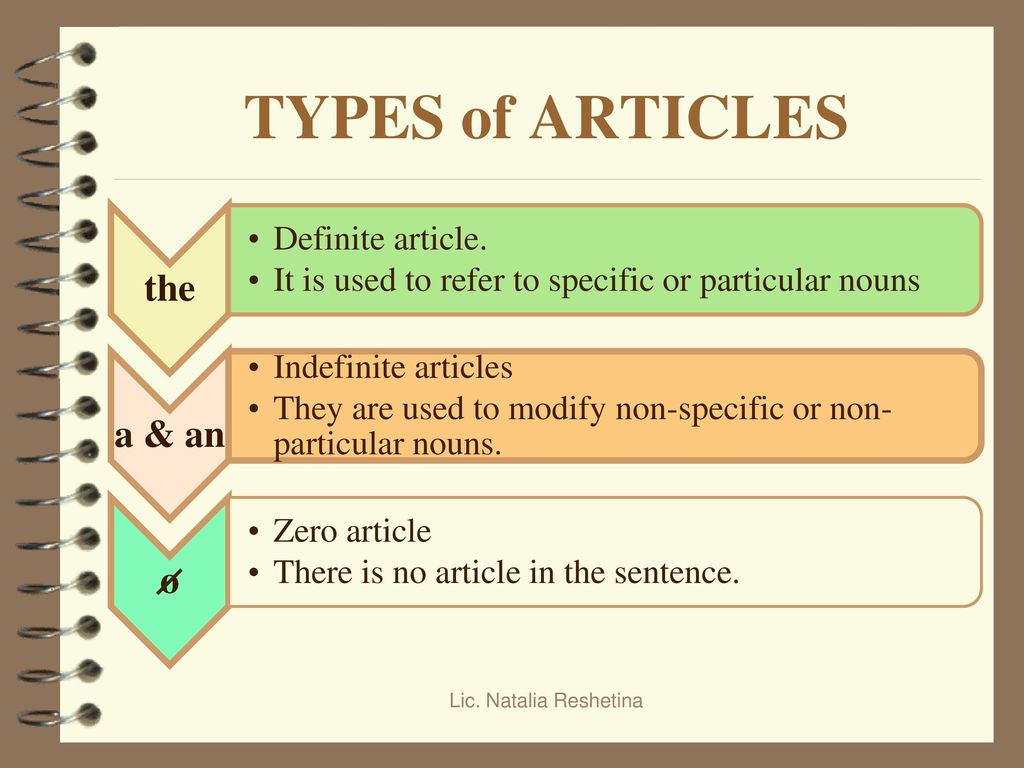Boost Your Web Site Traffic with SEO-Friendly Material from articles
Boost Your Web Site Traffic with SEO-Friendly Material from articles
Blog Article
The Mechanics of Articles: A Guide to Their Uses
The distinctions between the guaranteed and indefinite short articles can substantially modify the meaning of a sentence, affecting exactly how information is shared. Common blunders, such as the inaccurate application of "a" and "an" or the abuse of posts with uncountable nouns, can lead to complication.

Sorts Of Articles
When it concerns understanding the kinds of write-ups, it is vital to break down the differences that exist among them. Articles in the English language are categorized primarily right into 2 types: certain and indefinite posts.
The guaranteed write-up, "the," is made use of to refer to particular nouns that are recognized to the viewers. It signifies that the noun it changes is specific and identifiable, distinguishing it from various other possible entities. As an example, in the expression "the book on the table," the speaker suggests a specific publication that both the speaker and audience know with.
In comparison, indefinite posts, "a" and "an," are utilized to refer to non-specific nouns. The selection between "a" and "an" depends on the phonetic context of the complying with word, where "an" is utilized before vowel audios.

Definite Article Usage
The certain short article "the" plays a critical role in specifying nouns within a sentence, allowing clear communication of ideas. Its main function is to suggest that the noun it comes before is one-of-a-kind or known to the reader or listener. In the expression "the publication on the table," "the" signals that a details publication is being referenced, one that is identifiable in the context.
" The" is commonly used with singular and plural nouns, as well as uncountable nouns, additionally boosting its convenience. When reviewing concepts, events, or entities that are globally acknowledged, such as "the Earth" or "the Web," the precise post offers to underscore their singularity. In addition, it can be used with superlatives, as in "the most effective service," to represent a details degree of contrast.
In different contexts, the guaranteed post also shows up with geographical names, establishments, and cultural referrals, such as "the United States" or "the Louvre." Recognizing its appropriate usage is critical for attaining precision in language, thus promoting efficient interaction in both written and talked types.
Indefinite Short Article Use
Indefinite short articles, especially "a" and "an," offer a distinct purpose in language by introducing nouns that are not specifically known to the viewers or listener. These short articles convey a sense of abstract principle, showing that the noun they change is just one of several possible circumstances instead than a particular entity.
The selection between "a" and "an" depends on the preliminary noise of the adhering to word. "A" is used prior to words that begin with a consonant noise, while "an" comes before words that start with a vowel audio.
Uncertain articles also come into play when discussing occupations, citizenships, or affiliations. Generally, the right usage of uncertain write-ups improves communication by supplying quality and precision concerning the nouns being reviewed.
Usual Mistakes to Avoid
Lots of learners come across risks when making use of uncertain write-ups, which can bring about complication in communication. A common mistake is utilizing "a" prior to words that begin with vowel sounds, such as "an honor" or "an umbrella." This error comes from focusing only on the initial letter as opposed to the phonetic noise. Furthermore, learners commonly abuse uncertain posts with vast nouns, mistakenly specifying "a water" as opposed to just utilizing "water," which does not require an article.
Another constant error involves omitting the indefinite write-up when it is necessary. One may say "I saw dog in the park," overlooking to consist of "a." This omission can make sentences seem insufficient. Conversely, using uncertain short articles exceedingly can also bring about awkward wording, such as "I had a fun time at a the event."
Understanding the contexts in which review indefinite posts should be used is essential. For instance, they are not made use of when referring to general classifications, as in "Pet cats are lively," instead than "A pet cat is spirited." Recognizing these typical mistakes will boost clearness and precision in composed and spoken English.
Tips for Effective Usage
To properly use uncertain write-ups, it is essential to understand their ideal contexts and subtleties. this hyperlink Indefinite posts, namely "a" and "an," are utilized to refer to non-specific things or to present new principles.

Furthermore, avoid overusing uncertain short articles in cases where specificity is called for. Technique reading numerous messages to observe exactly how experienced writers use uncertain short articles, improving your understanding of their reliable application.
Verdict
Mastering the mechanics of articles dramatically improves quality and accuracy in interaction. Recognizing the distinctive duties of precise and indefinite articles permits even more reliable expression of concepts. Recognition of you can find out more typical mistakes and adherence to developed guidelines better add to enhanced language abilities. By applying these concepts regularly, individuals can boost their writing, ensuring that the desired meaning is communicated with accuracy and class. Ultimately, a solid grip of write-up usage is crucial for effective academic and professional communication.
Report this page